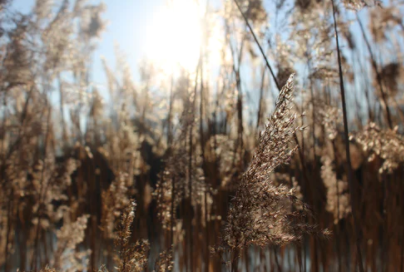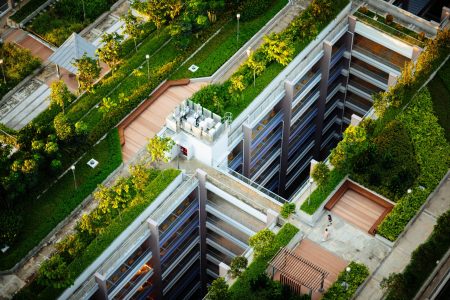Urban trees in Wisconsin USA

Trees have been shown to cause significant cooling in Madison, Wisconsin. Trees have a cooling effect due to reflecting more sunlight than darker surfaces, and the latent heat of evaporation from leaves. The study showed that daytime air temperature decreased with increasing canopy cover; for example, increasing canopy cover from 0-100% corresponded with a decrease in temperature by 1.3°C within a 30m radius. The effect was nonlinear, with canopy cover of over 40% leading to substantially cooler temperatures.
Impervious surfaces such as asphalt opposed the cooling effect of trees, with air temperature increasing linearly with greater impervious cover. The warming effect of impervious surfaces cannot be completely counteracted by tree cover, because canopy cover has a limited effect on heat at night (in part due to reduced photosynthesis and consequent evaporation). Therefore reduction of impervious cover is also needed to reduce urban heat.
The use of nature-based solutions for cooling in cities will become increasingly important as climate change progresses, due to acceleration of the urban heat island effect (cities are commonly 5-15°C warmer than surrounding areas).




